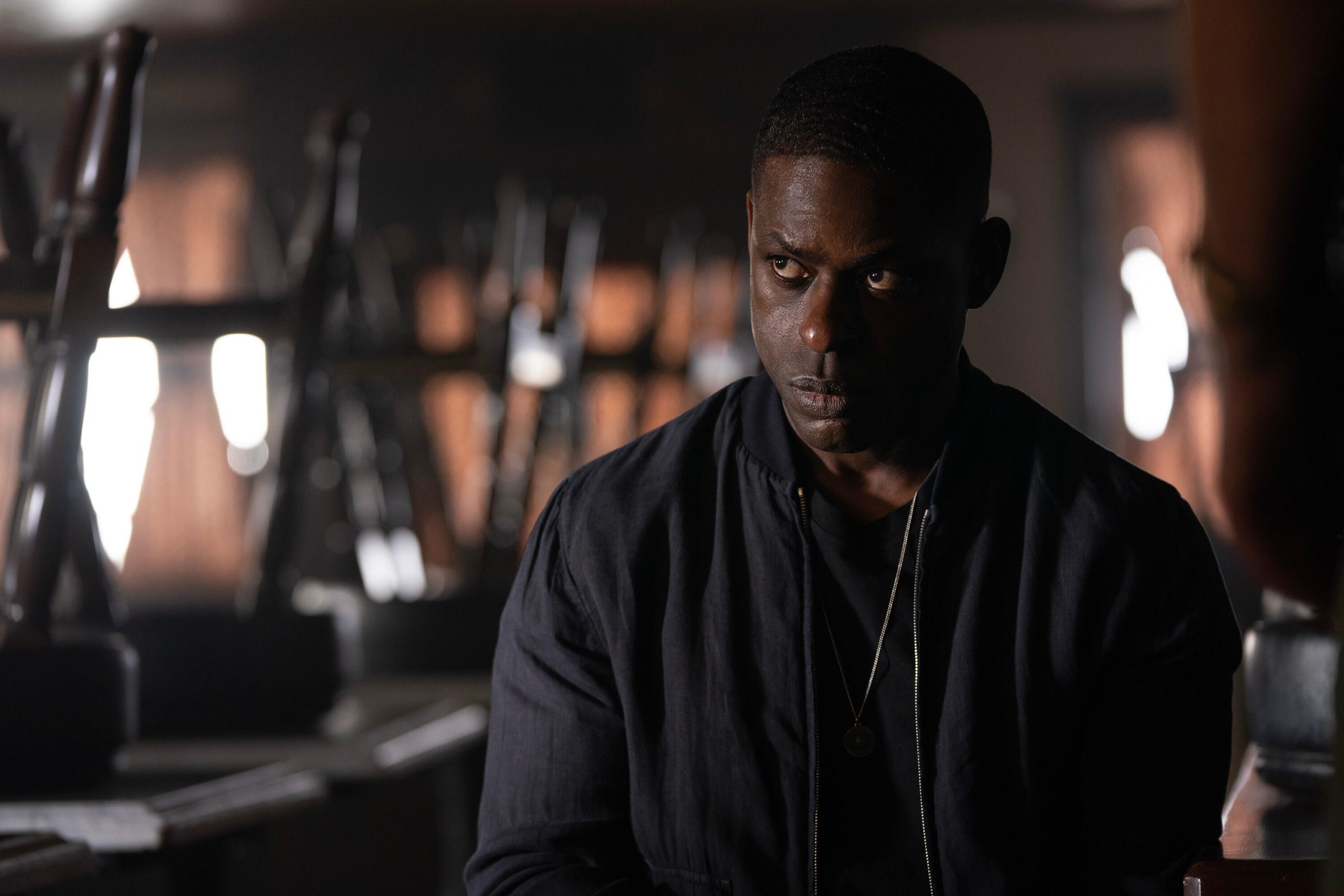Dan Fogelman loves a bait-and-switch. In its premiere, his signature show This Is Us—the smash-hit NBC tearjerker that revived the family-drama format amid a broadcast landscape dominated by procedurals—introduced four characters all turning 36 on the same day. By the end of the episode, viewers learned that three of them were siblings (two fraternal twins and one adoptee). The fourth turned out to be their father, his story set in the 1980s. Conspicuously absent from the present-day scenes, he was soon confirmed to have died years earlier. These revelations set the stage for six maudlin seasons of love and loss across multiple timelines.
[time-brightcove not-tgx=”true”]
Fogelman’s new Hulu series Paradise, premiering Jan. 28, makes This Is Us’ approach to storytelling look timid. It, too, leads viewers to believe it’s a certain kind of show—a political thriller à la The Diplomat or Scandal—only to execute a massive swerve in the final moments of its first episode. Instead of tapping into a single family’s reservoir of trauma, the shift broadens Paradise’s world and raises its stakes, providing Fogelman a platform to address some of the most urgent issues of our time. On a scene-to-scene basis, the series can be gripping. But the disconnect between its lofty themes and the shallowness of its characters and world-building undermines its grand ambitions. What might have been an insightful commentary on the fate of the human race becomes merely big, twisty, and in some cases extremely silly entertainment.
The hero of Paradise is This Is Us breakout Sterling K. Brown’s Xavier Collins, the shrewd, disciplined, but mysteriously haunted longtime head of security for President Cal Bradford (James Marsden). Early in the premiere, Xavier arrives at Cal’s residence in the morning to find the leader dead on the floor of his bedroom. As both the agent who discovered the body and the last person to see the President on the eve of his murder—as well as someone whose relationship with his late boss seems complicated at best—Xavier is an obvious suspect. Which is probably why he chooses to lock down the premises instead of immediately reporting the apparent assassination. So far, so typical of political thrillers in this age of paranoia. Yet even in these opening scenes, you might notice something off about Paradise’s portrait of the American presidency. Cal’s home doesn’t look anything like the White House, for instance. Also? A flashback to the beginning of his second term, five years ago, raises the question of whether he’s now in his third term or if all this fuss is over an ex-POTUS who’s kept his security detail.
It would be hard to say much more about the plot without giving away the twist. Suffice to say that Paradise is as much a work of speculative fiction as it is a grounded political thriller. Fogelman is clearly—sometimes too clearly—thinking about the acceleration of climate change, the ramifications of politicians putting themselves before their constituents, and the outsize influence of billionaires on our leaders. “The world is 19 times more f-cked than anyone realizes,” Cal explains to Xavier, cryptically, in one flashback. Julianne Nicholson, always a welcome addition, plays an icy tech mogul, Samantha, whose proximity to Cal (a progressive variation on the George W. Bush failson-made-good type) and his now-senile svengali father (Gerald McRaney) raises red flags. The ensemble also includes Cal’s and widower Xavier’s kids; Xavier’s underlings; his boss (Krys Marshall), who was sleeping with Cal; and an influential member of Samantha’s entourage (Sarah Shahi) who, for unknown reasons, seems to believe Xavier is innocent. As in This Is Us, multiple timelines enable Fogelman to control the flow of backstory.
All of these elements keep episodes moving, with binge-friendly Fogelmanian twists detonating like so many small bombs. But the show is so loaded with mysteries, and those mysteries have such destabilizing—if not fully unbelievable—solutions, that the season’s overarching question becomes: What is actually going on here? The answers require the same level of narrative scaffolding as high-concept science fiction like Silo or The Expanse. Unlike those series, Paradise never convincingly builds out its world or gives us characters rich enough to deepen our engagement with the themes. Expository voids start to feel less like deliberate puzzles and more like messy oversights. Midway through the season, I found myself so distracted by the absurdity of the overarching situation as to be incapable of taking any of its ideas seriously.
Paradise’s failure, one that’s too common in the streaming era, is a failure of attention to detail. Many tired conventions and strategies of mid-2010s prestige drama are thoughtlessly deployed: parallel timelines, the trauma plot, the use of genre tropes to liven up a story that is really about the way viewers live now. An ostensibly playful, if not wholly subversive, use of the ’80s rock Cal adores as an aural motif yields episodes soundtracked first by the cheesy originals—“More Than Words,” “Eye of the Tiger,” and inevitably “Another Day in Paradise”—then by whispery, comically somber, often female-fronted covers of the same songs. As a stylistic choice, it’s at once emotionally heavy-handed and utterly bereft of thematic resonance.
The show’s biggest mistake is to delay a flashback to a pivotal and heartbreaking day in Xavier’s life until the penultimate hour of the eight-episode season. By keeping us in suspense, Fogelman misses opportunities to engage with the many moral and political quandaries (let alone address the practical impossibilities) inherent in the world of Paradise. Like certain characters whose sad fates only become legible after six elusive episodes, viewers stuck on the particulars of a series that leads with silly sensationalism miss our chance to get on board.

